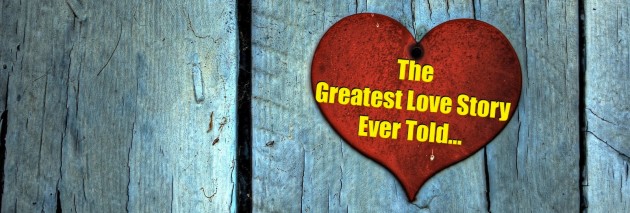I’m Feeling Gruntled Today, How About You?
 Hello, my name is Joelein Mendez and I’m a word-a-holic. I love words. I love to speak them. I love to read them. I love to make them up and play with them.Personally, I don’t think I have a problem; however, other people don’t always see my wordiness as a positive, especially when I get far too excited about word origins. Despite the rolled eyes and uttered groans of those who think otherwise—or maybe because of them (insert evil laugh here)—I think my “overexplanations” are perfectly acceptable. Case and point: a friend playfully asked me if my hair was its usual level of unkempt. “No,” I replied, “it’s impeccably kempt today.” After a short pause she countered with, “I bet you feel positively gruntled.” Indeed I did, so much so that I felt the need to look into unpaired words like disgruntled, and see if “gruntle” really is a word.
Hello, my name is Joelein Mendez and I’m a word-a-holic. I love words. I love to speak them. I love to read them. I love to make them up and play with them.Personally, I don’t think I have a problem; however, other people don’t always see my wordiness as a positive, especially when I get far too excited about word origins. Despite the rolled eyes and uttered groans of those who think otherwise—or maybe because of them (insert evil laugh here)—I think my “overexplanations” are perfectly acceptable. Case and point: a friend playfully asked me if my hair was its usual level of unkempt. “No,” I replied, “it’s impeccably kempt today.” After a short pause she countered with, “I bet you feel positively gruntled.” Indeed I did, so much so that I felt the need to look into unpaired words like disgruntled, and see if “gruntle” really is a word.
I thought I’d share my findings with you in case you were interested. If you aren’t, feel free to roll your eyes and moan and groan all you’d like, but you’ll be thanking me when you use this information as an icebreaker with an attractive blonde/brunette/redhead/baldie (?). Nerds are in. But in an effort to make things more digestible to the casual internet surfer, I’ll add a little drama into the mix.
Gruntle and Disgruntle: a Story of Love Lost and Found Again
Disgruntle is an unpaired word. Looking at him you’d think “Hey, that’s a good looking word, with a prefix like that he should have an antonym by his side. Must be his personality.” Though he does go around looking irritated, his discontent isn’t the reason for his single status. Disgruntle was once close with Gruntle, but that was a long time ago and it didn’t work out.
 It all started with Grunt. Forgive me for saying so, but she wasn’t the most lady-like word; Grunt went around making throaty pig noises. One day she thought, “I need a makeover. Everyone thought Spark was a bit volatile, and then she decided to emphasize her repetitiveness by adding a frequentative suffix. Now that she goes by Sparkle, all anyone can say is how pretty she is.” So the repetitive form of Grunt became Gruntle. Not really an improvement. Over time Gruntle became bitter and went from making repetitive pig noises to grumbling and complaining. Then Disgruntle came into the picture.
It all started with Grunt. Forgive me for saying so, but she wasn’t the most lady-like word; Grunt went around making throaty pig noises. One day she thought, “I need a makeover. Everyone thought Spark was a bit volatile, and then she decided to emphasize her repetitiveness by adding a frequentative suffix. Now that she goes by Sparkle, all anyone can say is how pretty she is.” So the repetitive form of Grunt became Gruntle. Not really an improvement. Over time Gruntle became bitter and went from making repetitive pig noises to grumbling and complaining. Then Disgruntle came into the picture.
At first it was a match made in heaven. In those times, the mid-17th century, the prefix “-dis” was used as an intensifier with already negative words, so Gruntle went around uttering complaints and Disgruntle did the same while in a state of moody discontent.
Needless to say it didn’t work out. They were too alike and they soon grew bored with each other’s attitude and drifted apart. Gruntle soon fell out of the public eye, poor dear.
Disgruntle went on with his life as displeased as ever. That is, until a new word came along in the 1930s. Coincidentally her name is Gruntled; however, unlike the previous one, she’s lovely. She’s a back-formation so perfect it seems as though she’s been made just for him. They’re quite different: Disgruntle dislikes everything while Gruntled seems perfectly satisfied with just about everything. Sometimes opposites really do attract.
The Short and Cynical Version
Disgruntle was formed by adding the intensifier –dis to the word gruntle, which had previously meant to “grunt like a pig” but morphed into “grumble and complain”. When gruntle fell out of use it became a fossilized term (aka, cranberry morpheme), in which the word gruntle doesn’t have an independent meaning outside of the word disgruntle. If you Google “Jack Winter” and “New Yorker,” you should find a story called “How I Met My Wife.” Every sentence has at least one cranberry morpheme.
Feeling the need for an antonym to disgruntled, the –dis was removed and gruntled (pleased and contented) was born. Though it is mainly used humorously, it has become a legitimate word. Disgruntled should be happy, it is now part of a pair.
Do you know of any words with interesting histories?

